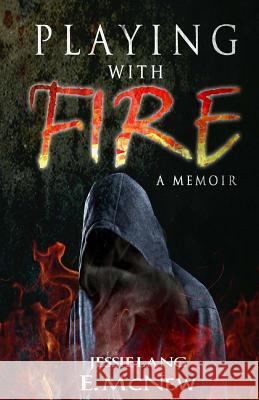Playing with Fire: a memoir » książka
Playing with Fire: a memoir
ISBN-13: 9781496156532 / Angielski / Miękka / 2014 / 174 str.
Elizabeth Jeter spent her adolescence as a teen mom, barely surviving a four year series of abuse and trauma. The unexpected abuse that was occurring in her own home put her into a state of shock and denial, which led her to stay with the potential suspect. At eighteen, Elizabeth was called to the stand to testify about the abuse in a family court-room which would determine the fate and custody of her children. Her guilt, denial, and utter disbelief distorted her memory and recollection of the events leading up to the abuse. She was in a heavy sleep the night that the abuse occurred, which held the most critical pieces of information. In a desperate attempt to make for certain that the unknown abuser would be put to justice, Elizabeth admitted to detectives that her boyfriend had dropped methamphetamine into her coffee and convinced her to try cocaine for the first time, also secretly laced with crystal meth. Her peers and the pressure she felt to fit in ultimately led to her full-blown weekend binges. The detectives working the case did not care that she was once a drug-free, productive, and ambitious mother just a month earlier. They didn't see her for the mother, sister, daughter, and "role-model teen mom" that she had once been. The detectives ignored a statement made by her boyfriend, of the prior suspected child abuse from his older brother; another man present at the time the crime occurred. The detectives wanted a confession; they didn't care who it came from. Elizabeth began questioning her own sanity as word of the crime spread. Her community pointed fingers and shamed her. She trusted that law enforcement and court officials would solve the case, but was quickly discouraged when no progress was made. "Why aren't they doing their job ?" she asked, over and over as suspects were quickly weeded out with short sessions of interrogation. Upon discovering gut-wrenching evidence of the crime, in her bathroom, she quickly rushed the small garbage pail to the police department. She was convinced that this would bring justice. The detective sighed and accepted the evidence, discouraging her further. The detectives were trying to convince Elizabeth that she knew what happened. They convinced her community, and even her own attorney. Elizabeth began to believe that she was crazy for not being able to remember what happened. She gave up, allowing her boyfriend back into her home, and did not feel worthy of being a mother to her children who had suffered because of her lack of awareness and supervision. Step into an emotional rollercoaster as Elizabeth endures struggle and heartache, praying night after night for the pain to just stop.
Zawartość książki może nie spełniać oczekiwań – reklamacje nie obejmują treści, która mogła nie być redakcyjnie ani merytorycznie opracowana.











